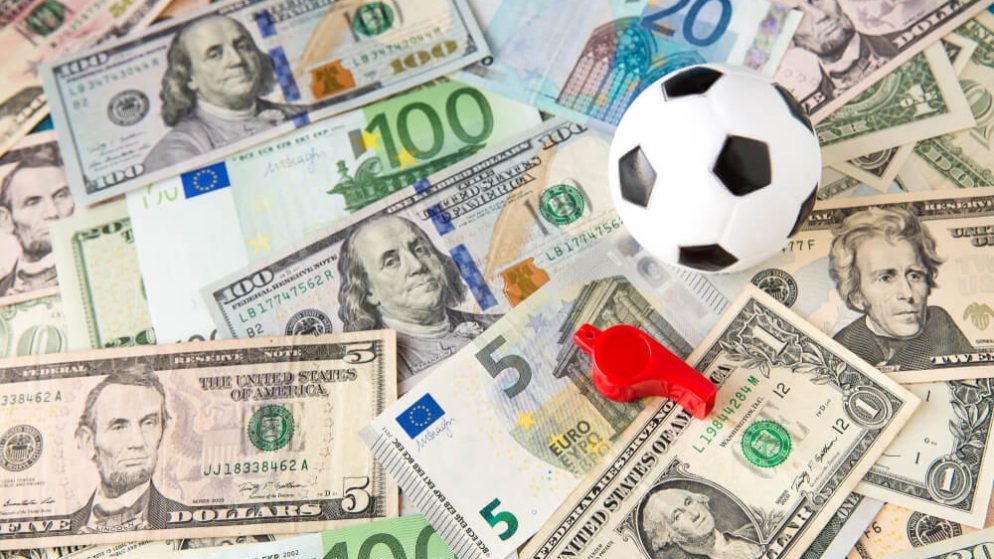

Illinois sportsbooks have lost more than $812 million since operators started accepting wagers in the state in March 2020. Gamblers that have placed bets in various sports, events, matches, and tournaments have reportedly lost an estimated $122 million based on reports from the state’s Gaming Board.
According to the governor, the state has so far received $81 million in license and application fees from sportsbook operators looking to join the thriving Illinois sports betting market. In total, the state boasts 8 sportsbook operators- 7 located at physical casinos and 2 situated at horse racing tracks. With these entities, Illinois has managed to build the second most successful sports betting market in 2021 and is one of the fastest-growing this year.
Sportsbooks in the state managed to generate a combined $ 524.8 million in profits this year. 15% of these profits were redirected to projects and various community initiative funds. The only sportsbooks in the country to have recorded an increase in revenue last year was New Jersey. This makes sense as Garden State was the first to legalize its market in 2018.
Today, the Garden State has attracted 21 sportsbook operators that have combined produced 35.3 million. Since the sports betting market in the state launched, Rivers Casino in Des Plaines has emerged as the leader and has handled close to $40 million in games since launching. Its close competitor the Grand Victoria Casino in Elgin, on the other hand, has accepted bets in more than 1.5 million games.
The Hollywood Casino in Aurora, alternatively, has accepted close to 1 million sports wagers since the book opened in the region. Over the last year, sportsbooks in Illinois, have averaged a monthly tax revenue of $7 million. The state’s best tax month was recorded in November last year when the state raised close to $12 million in taxes.
What we cover
The sports betting market has seen immense growth overall
Over the last few months, a lot of people have been keen on taking part in sports betting. So much so that 14 states have already surpassed the $1 billion mark in sports bets. States that had been resisting sports betting for decades are now reaping the rewards of this fast-growing industry.
According to the American Gaming Association, casinos and gaming mobile apps generated $53 billion in revenue in 2021. Revenue increased by more than 20% compared to the annual record that had been set in 2019, which was right before the pandemic wreaked havoc on casinos that had to remain shut down for months on end. Despite the challenges presented by the pandemic, the remarkable rate at which the industry has recovered is nothing short of impressive.
Even though sports betting is legal in more than 2 dozen states, the Strip in Vegas still leads the pack when it comes to gambling. Vegas generated more than $7 billion in gross gaming revenue in 2021 based on reports from the AGA. Atlantic City, on the other hand, produced the second-highest revenue with $2.6 billion in gross gaming.
The Illinois gaming market and the general Chicago market alternatively managed to come in third place, with a gross gaming revenue of$2 billion. Across the country’s more than 30 jurisdictions, 23 states set records for full-year betting revenue, which should surely prompt the remaining states to legalize their markets.
Although mobile sports betting is by far the most preferred way for modern gamblers to place bets, in-person betting at retail casinos is still a popular choice. Last year, slot, table, and retail sportsbooks managed to generate an impressive revenue of $45.62 billion, which accounted for 85% of the entire gambling revenue.
Slot machines continue to be a sweet spot for brick-and-mortar casinos as revenue shot up by 10% compared to 2019. Table games, on the other hand, saw their revenue increase by 1.1%. Nearly all markets that have brick and mortar casinos that include slots, table games, and in-person sports betting saw an increase in revenue last year.
While it is worth noting that traffic in physical casinos still has not gone back to pre-pandemic levels, there has been a noted increase in consumer spending, which should help to stabilize the market. Revenue from sports betting has also been on the rise. In 2021, punters in the country wagered a record $57 billion on sports, which was an improvement of more than 160% compared to 2020.
In total, sportsbooks generated a total of $5 billion in all-time revenue last year. The growth that was experienced last year can mostly be attributed to the growth of 7 new markets. All of these new markets, except Delaware, hit a yearly betting record in 2021.
As the most lucrative sports betting market, New Jersey, topped the sports betting revenue table for the second year consecutively boasting $815 million in wagering revenue. Other sports betting markets that performed well include Illinois, Pennsylvania, Nevada, as well as Michigan.
iGaming has also managed to generate more revenue than ever before. At present, 6 states have legalized iGaming. All these 6 states produced an iGaming revenue of $3.71 billion, which was an increase of 139% compared to 2020. Last year, 2 new states, namely Michigan and Connecticut, debuted their iGaming markets and have been growing steadily since.
As far as iGaming is concerned, the Garden State is also the leader in iGaming revenue in the country, followed by Pennsylvania in second place and Michigan in third. New Jersey, Michigan, and Pennsylvania all managed to produce $1 billion in gaming revenue in 2021, which was a record that had not been established by any state.
Native American-owned casinos also reported as much as $4o billion in revenue in 2021. This year, this number is expected to go even higher as pre-pandemic operations finally stabilize. In 2022, 7 states are looking at legalizing their sports betting markets.
Final Thoughts
The states expected to legalize sports betting before the end of this year include Kansas, Hawaii, Oklahoma California, Missouri, Georgia, as well as Massachusetts. Several more markets are also expected to legalize iGaming this year including New York, Indiana, Missouri, and Massachusetts.






